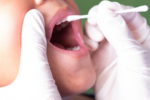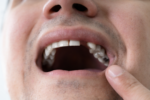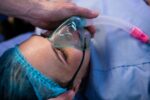Sometimes, depending on the severity or complexity of an individual’s situation, dental surgery may be necessary in order to restore the health of their smile and ensure that it functions properly for years afterward.
Many patients may feel anxious when they’re told they need surgery; this is a common and natural response. After all, a lot of us are not overly familiar with the details involved. This type of treatment can be performed to remedy a number of problems including impacted teeth, sinus issues, and jaw dysfunction.
If you’ve been told that you need to undergo oral surgery by your dentist, we encourage you to continue reading this blog; we’ll address frequently asked questions about these procedures, helping you feel prepared for your upcoming appointment.
Common FAQs About Oral Surgery
1. What are the different types of oral surgery procedures?
Oral surgery covers tooth extractions, dental implants, jaw surgeries, and other procedures that are tailored to personal needs. Based on your health, your oral surgeon will propose the best course of treatment for you.
2. How do I know if I need oral surgery?
Your dentist or oral surgeon will do a comprehensive examination and take diagnostic images to establish the severity of your condition. Wisdom tooth extraction, dental implant insertion, and jaw correction operations are all common reasons for oral surgery.
3. What should I expect during the procedure?
You won’t feel any pain while under anesthesia during the operation. The oral surgeon will take whatever action is required, including making incisions, removing tissue, or other measures. The anesthesia will keep you completely pain-free throughout the procedure.
4. Is oral surgery painful?
Anesthesia helps keep patients comfortable during the appointment. If you suffer any pain or soreness after your procedure, your dentist in Duncan will give you instructions on how to manage it. Measures can include pressing a cold compact against the site, eating soft foods, and taking medication.
5. What are the potential risks and complications associated with oral surgery?
Infection, bleeding, and prolonged recovery times are all possible complications. Your surgeon will review these with you and explain how to lessen their impact.
6. How long does oral surgery typically take?
The duration is dependent on the process itself. Simple extractions may take minutes, whereas major treatments like jaw realignment can take several hours.
7. What should I do if I experience complications after oral surgery?
Contact your oral surgeon immediately. We will point you in the right direction and help you solve any problems quickly.
8. How can I prepare for oral surgery?
Preparation for oral surgery usually entails fasting beforehand, talking to your anesthesiologist, and following any other pre-op instructions given to you by your oral surgeon. Should you have additional questions about oral surgery near you, reach out to your dentist.
9. Are there any dietary restrictions before or after oral surgery?
You should follow the food limitations suggested by your surgeon. After surgery, it’s best to eat soft meals and steer clear of anything too hot, too firm, or too crunchy.
10. What are the options for anesthesia during oral surgery?
Local anesthesia, sedation, or general anesthesia are all viable alternatives. The best option for your surgery will be discussed between you and your surgeon.
11. What is the recovery process like?
The road to recovery comprises both immediate and distant components. For the greatest outcomes, it is important to follow post-operative care recommendations, deal with pain, and show up for follow-up consultations. Having a dental professional near you can make a big difference in how easy it is to get expert care and how calm you feel before your oral surgery in Duncan.
12. What is the recommended oral hygiene routine following oral surgery?
Rinse your mouth gently with warm salt water and do as your surgeon instructs to keep your dental hygiene in check after surgery.
13. How can I maintain the health of my smile and prevent the need for oral surgery in the future?
The need for oral surgery can be greatly reduced with regular dental checkups, everyday oral hygiene practices, and a healthy lifestyle.
14. Why is it important to consult with an oral surgeon before undergoing any oral surgery procedure?
The best potential solution for your needs is ensured by oral surgeons, professionals with significant experience and training. The consultation gives you individualized advice and calmness. If you live in Duncan and need dental treatment, locating a dentist near you can provide the convenience and accessibility you require.
Contact Cowichan Valley Dental Group
The team here at our local dental center is at your disposal, ready to help you acquire the treatment you need to get back to enjoying life’s daily pleasures.
Whether you need a routine service like x-rays or a cleaning or more complex measures like oral surgery, we will walk with you every step of the way to ensure you get the results you desire.
Contact us to schedule an appointment for a healthier, happier smile!










